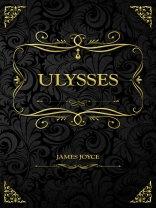'Ulysses, ’ James Joyce’s magnum opus, is a groundbreaking literary work that immerses readers into a single day in the life of Leopold Bloom in Dublin on June 16, 1904. Joyce delves into the depths of the human psyche through complex and experimental prose, setting new standards for modern fiction.
Across its 18 chapters, Joyce employs a variety of narrative styles, including stream of consciousness, interior monologue, and even parodies of existing literary styles, to explore the thoughts, desires, and memories of his characters. The narrative follows not only Bloom but also Stephen Dedalus, a budding writer who echoes the character of Ulysses from Greek mythology.
'Ulysses’ is much more than a mere depiction of everyday life; it’s a profound exploration of the human condition, addressing universal themes such as love, death, religion, politics, and identity. Joyce challenges the literary conventions of his time by crafting a novel that unfolds over a single day yet contains reflections and perspectives that transcend time and space.
This iconic book is renowned for its complexity and rich symbolism, as well as its ability to capture reality intensely and often humorously. 'Ulysses’ remains a challenge for readers, but also an endless source of inspiration and fascination for those who seek to explore the depths of the human condition through the art of fiction.
O autorze
James Joyce (1882-1941) was an Irish author whose innovative works revolutionized 20th-century literature. Born in Dublin, Ireland, Joyce is best known for his groundbreaking novels 'Ulysses’ and 'A Portrait of the Artist as a Young Man, ’ as well as his collection of short stories, 'Dubliners.’Joyce’s writing style is characterized by its complexity, experimentation, and deep psychological insight. He was a pioneer of modernist literature, employing techniques such as stream of consciousness, interior monologue, and nonlinear narrative structures to explore the inner lives of his characters and the human condition.Throughout his career, Joyce pushed the boundaries of conventional storytelling, often incorporating elements of autobiography and myth into his works. His writing is renowned for its intricate wordplay, rich symbolism, and meticulous attention to detail.Despite facing numerous challenges, including censorship and financial struggles, Joyce’s literary contributions have had a lasting impact on generations of writers and readers alike. His exploration of themes such as identity, exile, religion, and the search for meaning continues to resonate with audiences around the world.James Joyce remains one of the most influential and celebrated figures in modern literature, revered for his unparalleled mastery of language and his profound insights into the complexities of the human experience.












